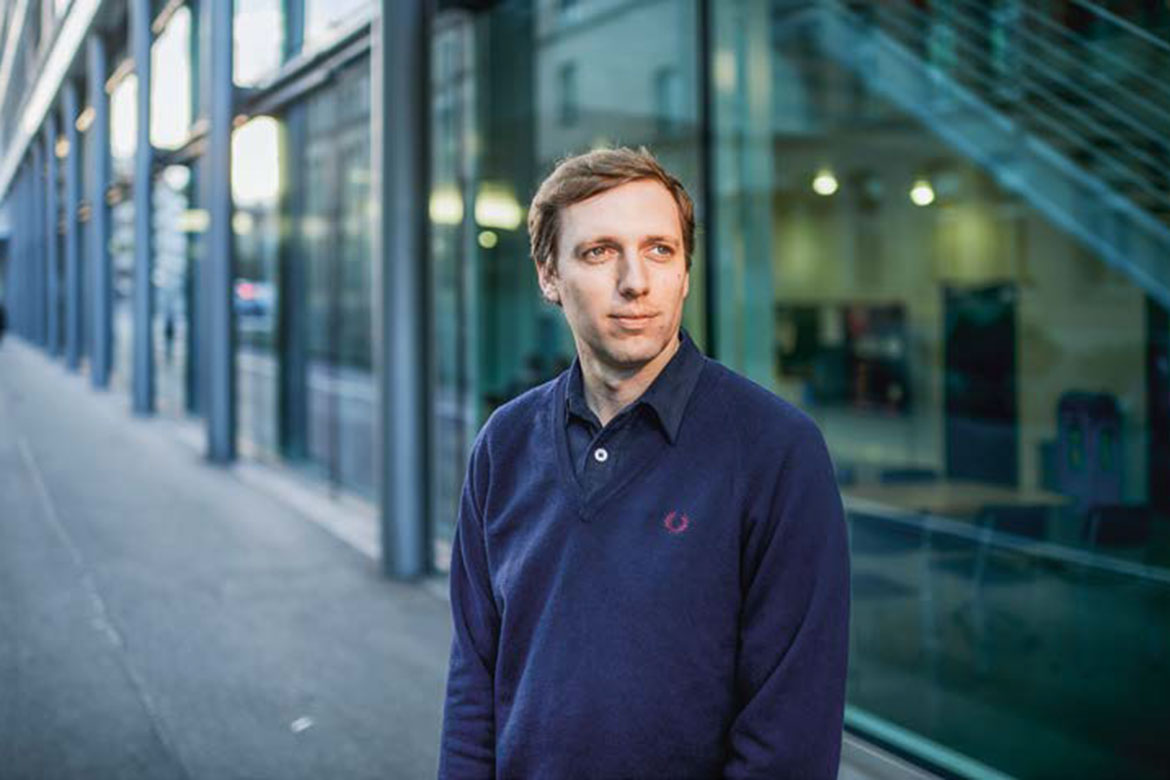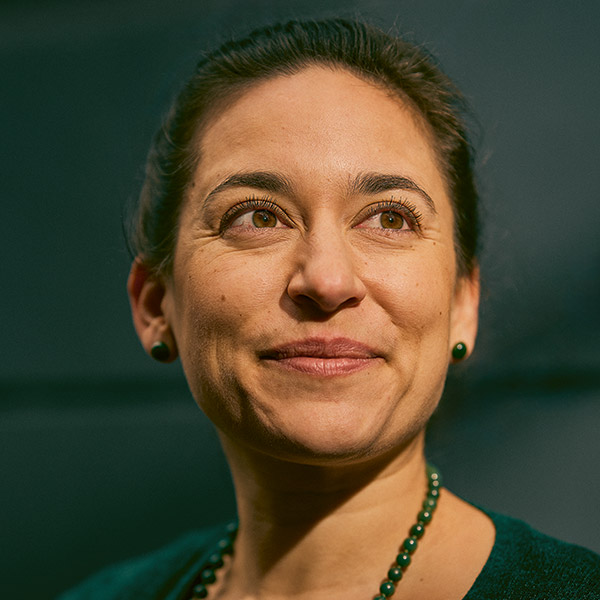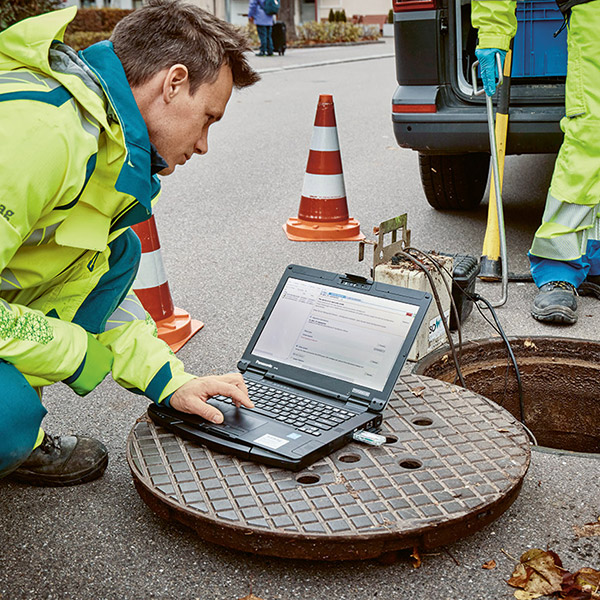“We need inconvenient researchers”
Ruedi Noser, a member of the Council of States for Zurich, is convinced that global warming can be stopped by means of scientific innovation. He’s demanding more competition for Swiss universities, and wants more researchers to speak their minds.

If you divide the world up into good and evil, you’ll poison everything, says Ruedi Noser, who has represented Zurich in the Council of States since 2015. | Image: Manu Friederich
Ruedi Noser, when did you last pick up the telephone and ring up a scientist?
During the debates about the CO2 law, I was speaking with scientists all the time. I can’t even begin to list them all. Whether or not you’re of the same opinion as the scientists, you at least have to know the facts if you’re going to talk politics.
So it’s quite normal for you to exchange views with researchers?
Yes. I sat together with scientists here at the Live Science Center in Zurich, in order to grasp what might become important in medicine in the next 20 years. So much popular science is out there, promising God and the world – like the scientists in Silicon Valley who want to become immortal. I simply wanted to get a better understanding of things.
Did it work?
I think so. For example, we spoke about progress in genetic engineering. In future, we’ll be able to use ‘gene scissors’ to make mutations that will look no different from conventionally bred variations. And the technology will become so cheap that every high school lab will be able to afford it. Under such circumstances, today’s genetic engineering law would simply be no longer enforceable.
A lot of people are scared of such developments. Are you?
Fear is a poor advice-giver. There are two basic criteria that you have to meet as a politician. First, you have to like people. Secondly, you have to be an optimist. Otherwise, you become very conservative. I’m convinced that we will be able to solve our current problems.
With regard to the reduction in CO2 demanded by the Paris Convention, you’ve said: Do more research and it will all turn out well, without our having to do anything extra.
That’s a bit of an over-simplification. In Switzerland, it’s easy to preach restraint. I still have a few shirts in my wardrobe and can get through the next couple of years without buying a new one. But that’s true of half a billion people at best. If we want all eight or nine billion people in the world to live in dignity and decency, we’re going to have to innovate.
Do you really believe that innovation can get us that far?
We don’t have a choice. If we want all the inhabitants of this Earth to live with basic human rights, we’ll have no chance without technological innovation. At present, there’s a paradoxical triangle: We want to be a multicultural society, we want to solve problems globally, but at the same time we are supposed to stop visiting each other. That just doesn’t make sense. I think it’s good that we’re cosmopolitan and linked to the world. That is a basis on which we can start to solve our problems together.
Can you give us an example of technological innovation that’s impressed you?
There’s Climeworks. It’s a start-up that takes CO2 out of the air and makes it usable for clients. But there are a lot more exciting research projects at ETH Zurich and at the universities. It does bother me, however, that the first plant built by Climeworks to turn CO2 into kerosene is located in Amsterdam, not in Zurich where the idea was developed. Switzerland has to be at the forefront of solving the problems of energy technology.
Does the cooperation between politics and research follow the correct rules?
We need a clear commitment to basic research from politicians, and a commitment to transfer basic research into applications. But politicians mustn’t be able to decide what’s good research, and what’s bad. We also need researchers who are inconvenient.
What do you mean by that?
Politicians and the general public like to hear certain things. And I get the impression that it’s these same things that are being prioritised by researchers, whereas it would be better if they talked about the things that really need to be done. We need researchers who can offer opinions from an independent perspective. And we need a system that supports such independence. All the people active in research funding should keep asking critical questions of themselves, to ensure that they are really following their basic principles. They have to allow researchers to say and do things that are inconvenient.
What role do scientific facts play in parliamentary debates?
Scientific facts play a very important role. However, we are faced with the problem that the data and the facts on which our arguments are based are always political in nature. The Federal Statistical Office, for example, isn’t independent of the federal administration, which means that the statistics they provide are also coloured by politics. Our room for interpretation is thereby restricted. I believe that objective statistical data should provide a basis for us to reach the best solutions possible. In parliamentary discussions, everything is based on models that are politically conceivable. There is too little lateral thinking, too little creativity, and we question too few things.
Are you always open to change yourself?
Yes. To me, being ready for change means staying young. You can already be old at 20, but young at 80.
Are there things that you hold on to? What are your guiding principles?
You can hold fast to certain basic principles in politics. Mine is this: There isn’t just one solution. There are different solutions, and each one of them brings new problems with it. This means you can put aside all ideologies. They only end up limiting your thinking.
So holding up the freedom of the individual as your supreme principle isn’t an ideology?
It’s a human right. Human rights are there to protect people from the State. And I will defend them 100 percent. Human action is creative. If you want the State to infringe on that creativity, you’ll fail. Let’s take the climate as an example. We can only save it together, not by ostracising and condemning others. If you start dividing the world up into good and evil, you’ll poison everything. We have to take this path together. That’s why democracy is the best system for solving problems.
But there’s a lot of discussion about the climate.
Let’s take a cold, objective look at the task of reducing CO2 emissions. Switzerland set itself the goal of lowering these emissions by 20 percent by the year 2020. It will just manage this, while all the surrounding countries are going to fail. We will also manage our planned reduction of 50 percent by 2030. We should keep to a feasible plan, and support other countries in reaching their goals too.
But how are we to achieve this?
The CO2 law includes measures for reducing emissions that the Council of States wants to use to create the world’s biggest pro-capita climate fund. We can use this to help other countries. We will set up a new National Fund for sustainability research. Scientists haven’t even realised this yet. But we can only make a contribution if we invest in this research field. We can’t do it by returning to the 18th century.
What invention would you like scientists to come up with?
My answer won’t please you. I’ve also often pondered what I would do if I were 20 years old again. I’d probably set up a training institute. I think that although our universities are at a high level, they are not as dynamic as they could be. I would love Harvard or Berkeley to come to Switzerland and provide a little competition. Something like that is desperately needed. Our system is very sluggish. The idea that the universities of applied sciences, the traditional universities and the ETH all have to engage in research is also absurd.
Do you think it’s a mistake that the universities of applied sciences are putting more and more efforts into research?
I find the phrase “applied research” impertinent. There’s research. And there’s development. As soon as you have a goal in mind for your research, you’re engaged in development.
To finish now, let’s change the topic completely. If you could invite a deceased scientist to dinner, whom would you choose?
(Laughs) It would certainly be exciting to meet Albert Einstein. But I’m actually of the opinion that glorified role models from the past are one of the big problems of humanity. There are many interesting people alive today whom I’d like to invite to dinner.




